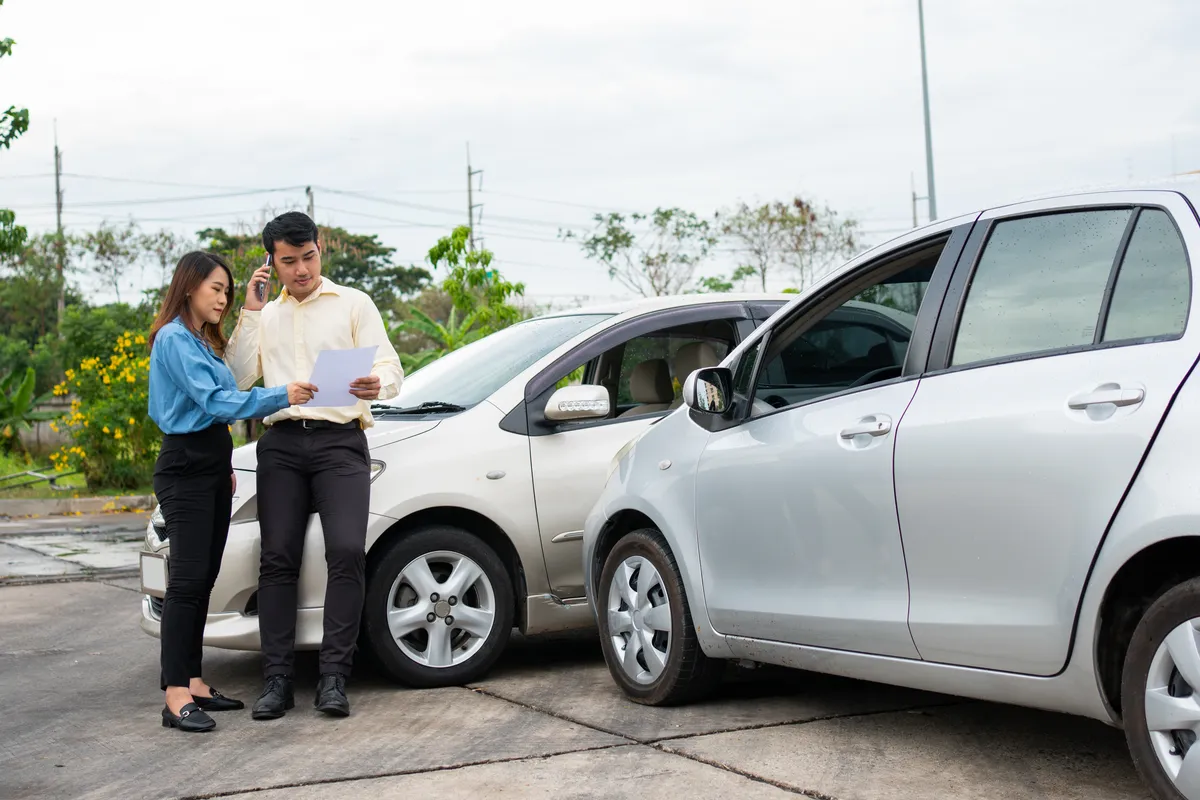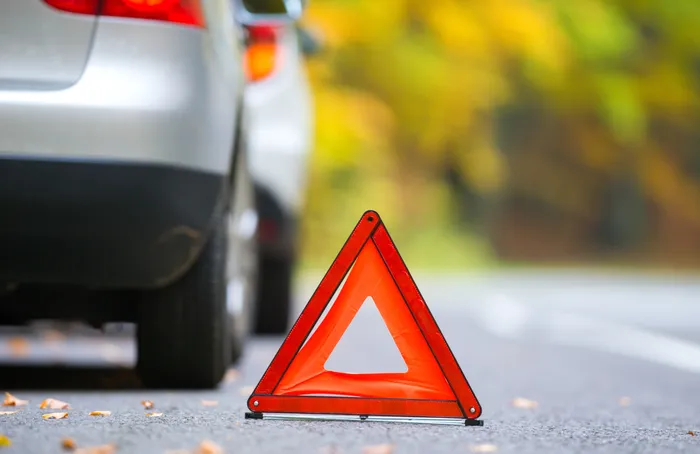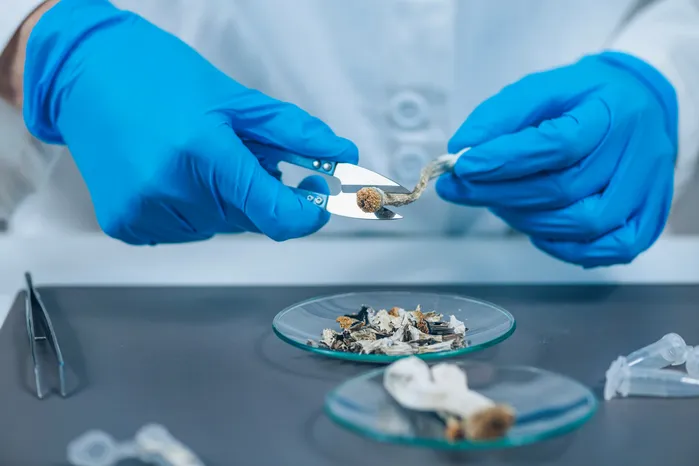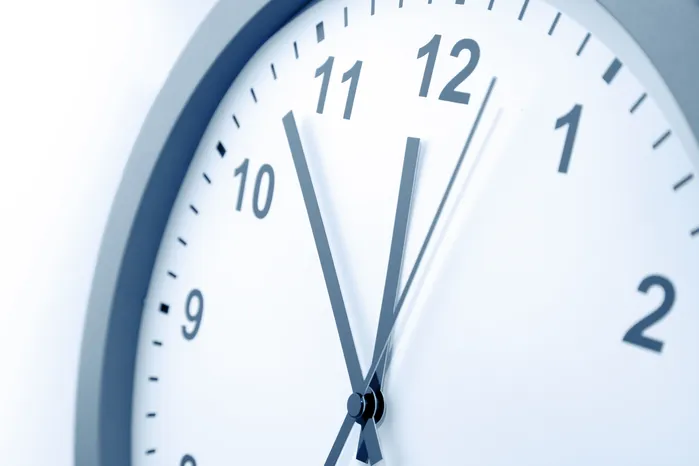5 min read time
Table of Contents

What Happens If You Don't Exchange Information After a Car Accident
After a car accident, if you don't exchange information with the other parties involved, you could create a challenging claims process for yourself, in addition to civil or criminal penalties depending on the circumstances.
Criminal Charges
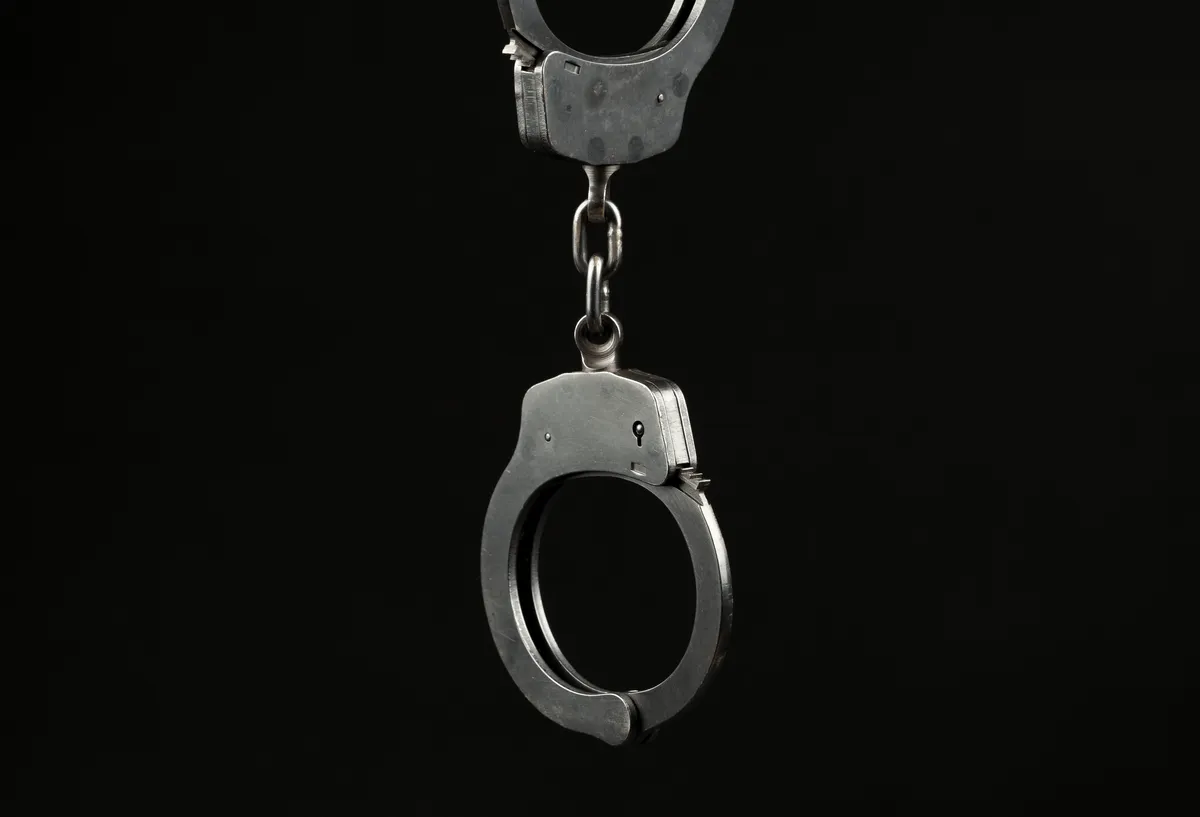
In every U.S. state, including Nevada, it's a legal obligation to exchange contact information such as your name, address, license plate number, phone number, vehicle registration, and insurance details with every driver involved in the car accident. This law of exchanging information also applies to every other driver, regardless of fault.
Failure to exchange such information after a car accident could technically be counted as a hit-and-run criminal offense, which has severe legal consequences, such as jail time, license suspension, hefty fines, or mandatory community service.
Insurance Claim Problems
Without collecting or exchanging information, especially insurance information, with the other driver involved in the car crash, it becomes incredibly complicated or impossible to file insurance claims, as the insurance company will often require you to present substantial evidence about the car crash and the drivers in order to avoid fraudulent insurance claims.
In addition, if you don't exchange insurance company information, other drivers may report you to your insurance provider, which can increase premiums or even result in your policy being revoked, as insurers typically require policyholders to exchange information.
In summary, while you may fear an increase in insurance rates and a tarnished insurance record by exchanging insurance details after a car accident you may be at-fault for, the legal implications for not doing so will undoubtedly lead to more severe legal and financial consequences.
Civil Liability
When you don't exchange information with the other drivers, you immediately make yourself look at-fault for the car accident, making any civil cases brought against you a walk in the park, leading to severe financial judgments being brought against you for the damages resulting from the car wreck, including repair costs, medical bills, and lost wages.
Additionally, since you didn't exchange information, your insurance company may deny coverage for any civil judgments brought against you, leaving you alone in the mists of financial and legal penalties.
What Information Should You Exchange After a Motor Vehicle Accident
After a car accident, it's essential to understand what information you should exchange in order to follow state law, improve the investigation process, and increase your chances of a favorable outcome.
Basic Information
Start by collecting basic details about the drivers involved, including:
- Full name (First and last)
- Phone number
- Address
Driver's License Information
Confirm that drivers are legally allowed to drive or are not operating a vehicle under an expired or suspended license by exchanging driver license numbers and issuing state.
Taking a picture of the driver's license is the most recommended way to collect this information, as it can avoid legal complications potentially brought by just writing it down.
Vehicle Details
Gather details on the vehicles involved in the car crash, including:
- Vehicle make, model, year, and color
- License plate number and issuing state
- Vehicle Identification Number (VIN)
- Vehicle registration details
Insurance Company Information
In addition to exchanging insurance company information being a legal requirement, it's also a must if you plan on recovering compensation for your injuries and damages.
Key insurer details you should collect are:
- Insurance company name
- Policy number
Witness Statements and Contact Details (Not a Legal Requirement)
While collecting statements and contact information from any potential witnesses is not a legal requirement, it will significantly assist you in pursuing maximum compensation from your insurance claims, as third-party statements can provide valuable insight into the cause and liability of the car crash.
What Should I Do If the Other Driver Refuses to Exchange Information
In a car accident, if a party refuses to exchange information with you or flees the accident site, it's crucial to avoid confrontation and take the steps outlined below.
#1 Stay Calm
Avoid escalating the situation by making threats, yelling, or making physical contact with the other driver.
To protect your legal rights and compensation, stay calm but stay assertive in getting the driver's insurance and contact details.
#2 Contact Law Enforcement
If the driver is still refusing to exchange information with you or has fled the accident scene, contact the appropriate police department and inform them that you were involved in a car crash and a driver involved is refusing to trade insurance and contact details.
When the police are on scene, they can:
- Run searches to obtain the necessary information
- Detain or cite the driver
- File a police report documenting the accident
- Issue a hit-and-run alert if the driver left the accident scene
#3 Document the Scene and Gather Evidence
Immediately, when a driver starts refusing to exchange information after a car accident, assume they are preparing to flee the scene as well and promptly start taking photos of their vehicle, capturing key elements such as the vehicle's license plate, color, model, and any damage to their vehicle.
#4 Find Any Witnesses
Seek witnesses who may have seen the accident and ask them to provide statements regarding the cause of the car crash and information surrounding the driver refusing to exchange information, such as their details on their vehicle and their appearance.
Having witness accounts can assist in the insurance process or resolving liability disputes, especially when crucial details are missing.
Steps to Take If Contact or Insurance Information Was Not Exchanged After a Car Accident
It undoubtedly creates complex situations when a driver refuses to exchange information after an accident, as it creates the possibility of a potential denial of your claim and you losing out on the financial settlement you are entitled to.
However, by taking the following steps, you can put yourself in the best possible situation to handle an uncooperative driver:
- Contact the Police: Call 911 and describe the driver's traffic violation and their vehicle's description.
- Gather Any Available Information: Any information, such as the license plate number of the driver, the vehicle's description, and the location of the incident, should be gathered, as it could be used in identifying the driver.
- Look for Witnesses: Seek out anyone who may have witnessed the accident and ask for their statement about the driver and the car crash.
- Notify Your Insurance Company: Immediately inform your insurance agent that you were involved in a car accident in which the other driver didn't exchange their information. This will give your insurer adequate time to start an investigation and take other practical steps.
- Consult with a Car Accident Attorney: Seek legal advice from a trusted car accident attorney from the Rodney Okano Car Accident Lawyer by calling (702) 566-3600 for a free consultation and learn how you can seek a settlement regardless of missing information.
Obtain the Compensation You're Entitled To
Contact Us Today
Rodney Okano Car Accident Lawyer is a Las Vegas personal injury law firm with over 20 years of experience helping clients obtain maximum compensation following injuries from accidents such as car crashes, worksite injuries, and slips and falls. Over those years, The Rodney Okano Car Accident Lawyer Law Firm has become an experienced law firm that can ensure exceptional results for any of its clients.

